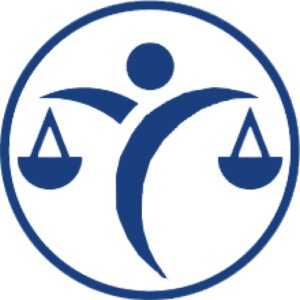Best Citizenship Lawyers in Bangkok
Share your needs with us, get contacted by law firms.
Free. Takes 2 min.
List of the best lawyers in Bangkok, Thailand
Legal guides written by Smart Legal Solutions:
- Main Legal Measures to Protect Foreign Investment in Thailand
- The importance of the geographical indications for the Thai economy
Legal guides written by SIAM LEGAL INTERNATIONAL:
- Defamation Laws in Thailand: Criminal Charges and Civil Suits
- The State of Thailand’s Long-Term Resident (LTR) Visa Program in 2025
- The Penalties Of Not Filing Your Income Tax Return As A Foreigner In Thailand
Thailand Citizenship Legal Articles
Browse our 1 legal article about Citizenship in Thailand written by expert lawyers.
- Thailand Elite Visa for US Citizens
- If you’re looking to move to Thailand from the United States, then the Thailand Elite Visa for US Citizens is the most convenient and rewarding option. This is a long-term privilege entry visa granted to members of the Thailand Privilege program, which offers four distinct membership packages offering stays of... Read more →
About Citizenship Law in Bangkok, Thailand
Citizenship in Bangkok, Thailand, is governed by national legislation rather than local laws specific to Bangkok. The law primarily derives from the Thai Nationality Act, which outlines the criteria and processes for acquiring or losing Thai citizenship. Thai citizenship can typically be obtained through birth, descent, marriage, and naturalization. The process can be intricate, requiring individuals to navigate through various legal requirements and documentation. Understanding this framework is essential for anyone hoping to acquire or relinquish Thai citizenship.
Why You May Need a Lawyer
There are numerous scenarios where legal assistance can prove invaluable in citizenship matters in Bangkok. These include:
- Navigating the complex process of naturalization, which requires a deep understanding of Thai law and compliance with various legal and residency requirements.
- Assistance in cases of dual citizenship, which may involve complex international considerations and legal implications.
- Handling disputes or complications related to citizenship revocation, which can be a challenging and sensitive legal matter.
- Legal guidance for children born to foreign parents in Thailand, where laws can affect the child’s citizenship status.
- Expertise in the application and documentation process for citizenship, reducing the risk of delays or rejections.
Local Laws Overview
Several key aspects of the Thai Nationality Law are crucial for understanding the citizenship landscape in Bangkok:
- Nationality by Birth: Individuals born to at least one Thai parent can claim Thai citizenship. Conversely, if both parents are foreigners, the child generally does not acquire Thai citizenship.
- Naturalization: Applicants typically must have resided in Thailand for at least five years, demonstrate knowledge of the Thai language, and meet moral and conduct criteria.
- Acquisition Through Marriage: Non-Thai women married to Thai men can apply for citizenship, though the process for men married to Thai women is more restrictive.
- Renunciation and Revocation: Thai law provides specific conditions under which citizenship can be renounced or revoked, often requiring legal scrutiny and defense.
- Dual Citizenship: Officially, Thailand does not recognize dual citizenship, although enforcement can be variable. This area is often nuanced and benefits from legal insight.
Frequently Asked Questions
What is the main law governing Thai citizenship?
The Thai Nationality Act is the primary legislation governing citizenship in Thailand.
Can I hold dual citizenship in Thailand?
While Thai law does not officially recognize dual citizenship, enforcement can be inconsistent, and it is advisable to consult a lawyer for personal circumstances.
How long do I need to live in Thailand before applying for naturalization?
Typically, you need to have resided in Thailand for a minimum of five years before applying for naturalization.
Can children born in Thailand automatically receive Thai citizenship?
Only children born to at least one Thai parent automatically receive Thai citizenship. Foreign national parentage does not typically confer Thai citizenship.
What is the process for a foreign spouse of a Thai national to gain citizenship?
Foreign women married to Thai men can apply for citizenship, often requiring proof of marriage, residency, and integration into Thai society.
Is it possible to renounce Thai citizenship?
Yes, Thai citizens can renounce their citizenship, but they must meet specific conditions and the process can be complicated, requiring legal assistance.
Will my Thai citizenship be revoked if I acquire another nationality?
Potentially, as Thai law does not officially recognize dual citizenship, although enforcement is variable.
What are the language requirements for naturalization?
You are expected to demonstrate proficiency in the Thai language as part of the naturalization process.
Can I appeal if my citizenship application is denied?
Yes, there is an appeals process, but it involves specific legal procedures where legal guidance is recommended.
What documents are needed for a citizenship application?
Your specific circumstances will dictate the required documents, but typically include birth certificates, marriage certificates, proof of residency, and financial records.
Additional Resources
Several organizations and government bodies can offer assistance or further information:
- Department of Provincial Administration: They manage local citizenship applications and provide detailed guidelines.
- Central Registration Division: Necessary for document verification and application processing.
- Thai Immigration Bureau: Offers advice on residency and visa statuses pertinent to citizenship applications.
- Non-Governmental Organizations: Various NGOs in Thailand offer consultation and advisory services regarding citizenship issues.
Next Steps
If you need legal assistance regarding citizenship in Bangkok, follow these steps:
- Research: Begin by gathering information about legal services specializing in Thai citizenship law.
- Consultation: Schedule consultations with legal professionals to discuss your specific needs and understand the legal landscape.
- Documentation: Organize all necessary documents with the guidance of legal counsel to streamline the application process.
- Application Support: Engage an attorney to oversee your application process, ensuring compliance with all legal requirements and efficient navigation of potential challenges.
Effective legal assistance can significantly enhance your chances of a successful citizenship application and help mitigate potential legal challenges in Bangkok, Thailand.
Lawzana helps you find the best lawyers and law firms in Bangkok through a curated and pre-screened list of qualified legal professionals. Our platform offers rankings and detailed profiles of attorneys and law firms, allowing you to compare based on practice areas, including Citizenship, experience, and client feedback.
Each profile includes a description of the firm's areas of practice, client reviews, team members and partners, year of establishment, spoken languages, office locations, contact information, social media presence, and any published articles or resources. Most firms on our platform speak English and are experienced in both local and international legal matters.
Get a quote from top-rated law firms in Bangkok, Thailand — quickly, securely, and without unnecessary hassle.
Disclaimer:
The information provided on this page is for general informational purposes only and does not constitute legal advice. While we strive to ensure the accuracy and relevance of the content, legal information may change over time, and interpretations of the law can vary. You should always consult with a qualified legal professional for advice specific to your situation.
We disclaim all liability for actions taken or not taken based on the content of this page. If you believe any information is incorrect or outdated, please contact us, and we will review and update it where appropriate.

















